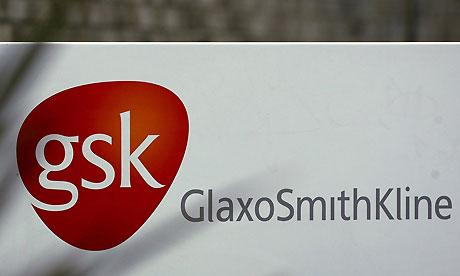
GSK now faces bribery allegations in Syria
pharmafile | August 13, 2014 | News story | Medical Communications, Sales and Marketing | China, GSK, bribery
GlaxoSmithKline faces fresh allegations that it bribed Syrian doctors and officials to boost sales of its medicines in what is now becoming a similar scenario for the firm.
This also follows recent accusations of corruption in its non-prescription business in the country.
These latest charges were laid out in an anonymous email and sent to the British company’s top managers last week, as reported by news agency Reuters.
GSK is one of the few big pharma firms still supplying drugs in Syria. It told the media this week that it would investigate the new claims involving its own staff and local distributors.
The company adds it had suspended relations with its Syrian distributors pending results of the probe.
“All the claims in this email will be thoroughly investigated using internal and external resources as part of our ongoing investigation into operations in Syria,” GSK says in a statement about the allegations.
“We are committed to taking any disciplinary actions resulting from the findings. We have suspended our relationship with our distributors in the country pending the outcome of our investigation.”
Small sums
The claims of corruption in the country involve relatively small sums of money, running into thousands of dollars.
GSK’s business in Syria is itself small, with sales of less than £6 million a year, against a group turnover of £26.5 billion recorded in 2013.
But despite the small of amount of money involved, the allegations are still damaging. In a 6 August email, seen by Reuters, a person familiar with GSK Syrian business says the alleged bribes in its pharmaceuticals business took the form of cash, trips and free medical samples.
“GSK has been engaging in multiple corrupt and illegal practices in conducting its pharmaceutical business in Syria,” according to the email send to Sir Andrew Witty, GSK’s chief executive and Judy Lewent, chair of the company’s audit committee.
The email cited names and dates of alleged illicit payments, including the case of a Syrian doctor who personally received between $200 and $300 a month in free samples in exchange for ordering GSK drugs for his hospital and rejecting rival ones.
The email also accuses the company of bribing officials at Syria’s Ministry of Health to obtain vaccines for illegal resale and said the company had stored them in an unapproved facility.
Tough sell
This compounds a difficult 12 months for GSK, which is currently embroiled in a long-running bribery allegation from China that began nearly a year ago over claims it laundered £320 million to pay doctors in the region to prescribe its medicines.
GSK says it is working with authorities in China to resolve the situation, but a number of its employees were arrested and one appeared to admit to the allegations on China’s state news broadcaster CCTV.
Just last week a private investigator working for the firm, and his wife, were both sentenced to two and half and two years in prison respectively for illegally trafficking private information from Chinese officials.
The PI, Peter Humphrey, had been investigating the creation of a sex tape last year of one of GSK’s senior executives, a recording that was then sent to GSK’s chief executive Sir Andrew Witty alongside allegations of corruption.
Next to face court in the country is the company’s former China boss Mark Reilly, the man who was secretly filmed with his Chinese girlfriend and paid Humphrey to find out who had made the tape.
It is the latest in a series of setbacks for the business which has also been accused of bribery in Iraq, Lebanon, Jordan and Poland over the past six months.
If the allegations from around the world are proved to be true, GSK may have violated both the UK Bribery Act and the US Foreign Corrupt Practices Act, as it is illegal for companies based in either country to bribe government employees abroad.
In the UK this could mean GSK being fined up to 10% of its business earnings for 2013.
This would be on top of the 2012 payment of $3 billion (£1.9 billion) GSK paid the US government, currently the largest healthcare fraud settlement in US history, after pleading guilty to promoting two drugs for unapproved uses and failing to report safety data about a diabetes drug to the FDA.
Ben Adams
Related Content

GSK’s Exdensur receives MHRA approval for asthma and rhinosinusitis
GSK’s Exdensur (depemokimab), a twice-yearly biological medicine, has received approval from the UK Medicines and …

Multiple myeloma treatment approved in Japan
GSK’s Blenrep (belantamab mafodotin) combinations have been approved by Japan’s Ministry of Health, Labour and …

CARBOGEN AMCIS manufacturing license advances services in China
Swiss pharma manufacturing company, CARBOGEN AMCIS, has announced that its facility in Shanghai, China, has …





